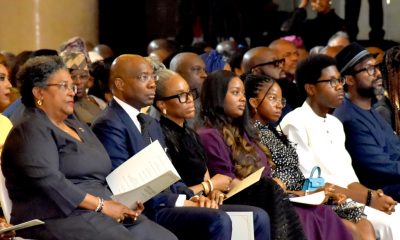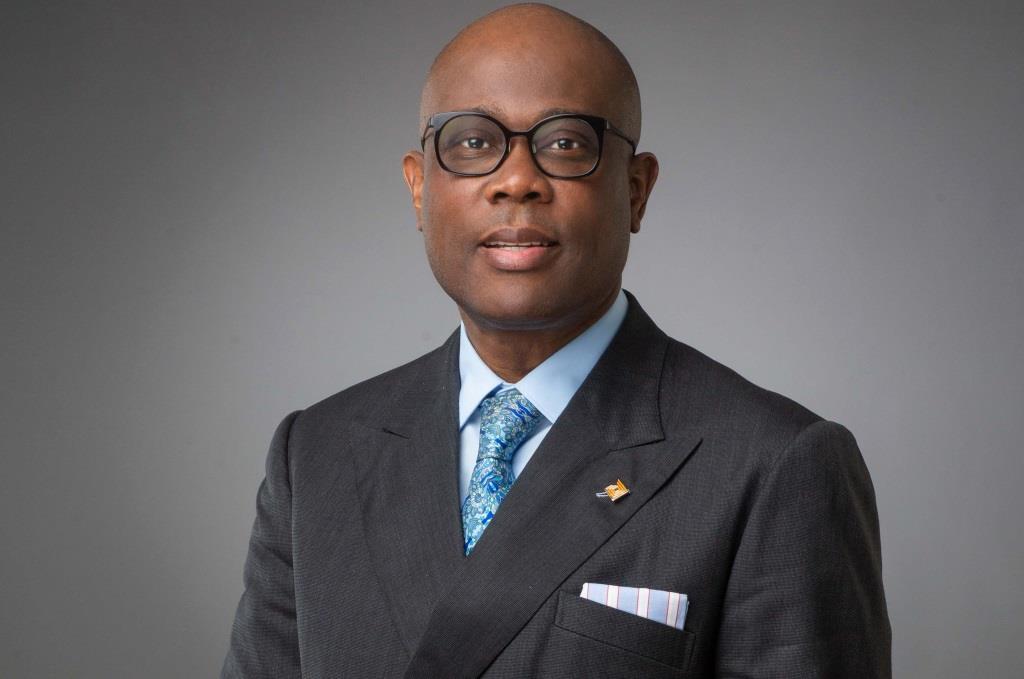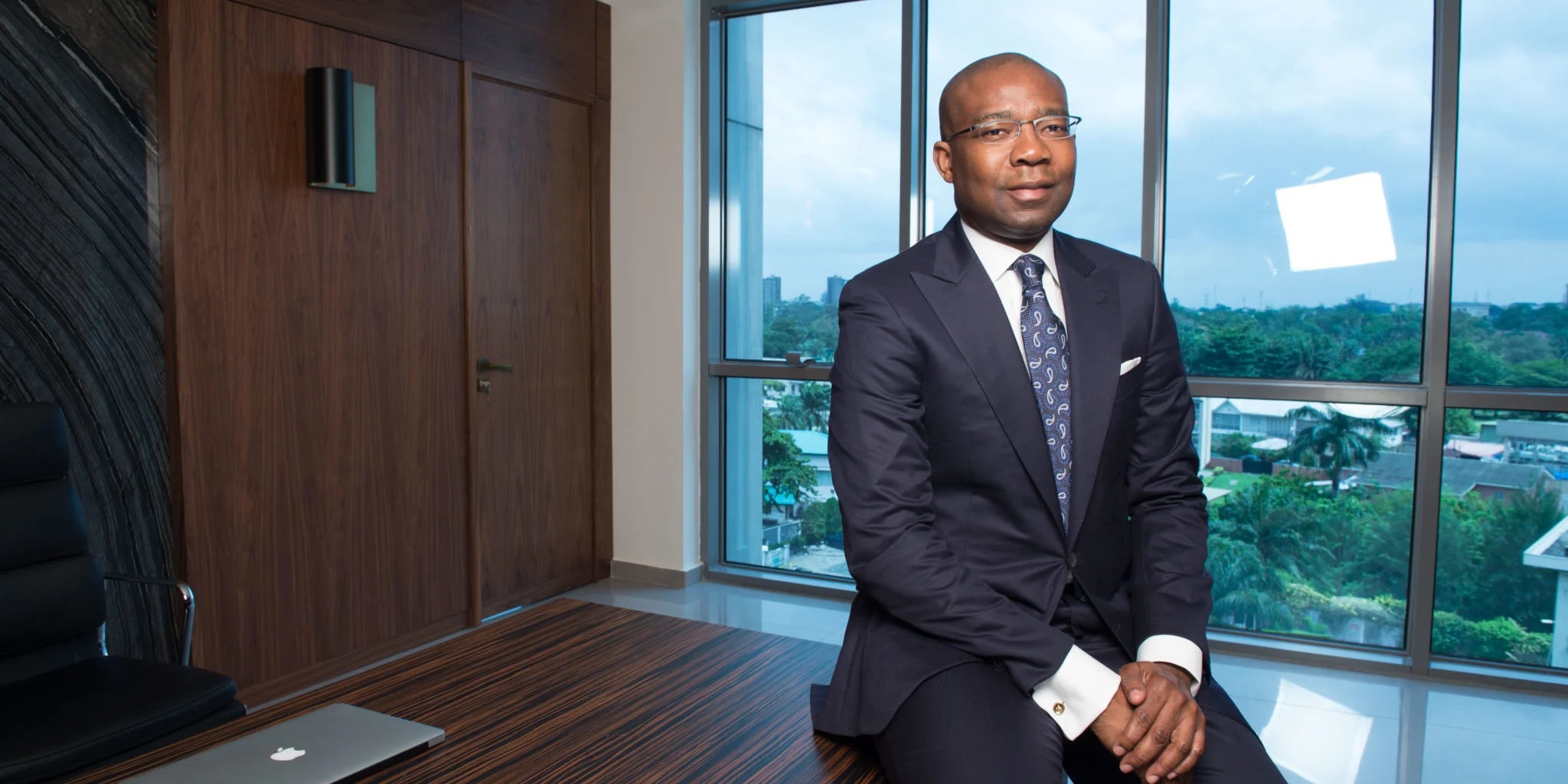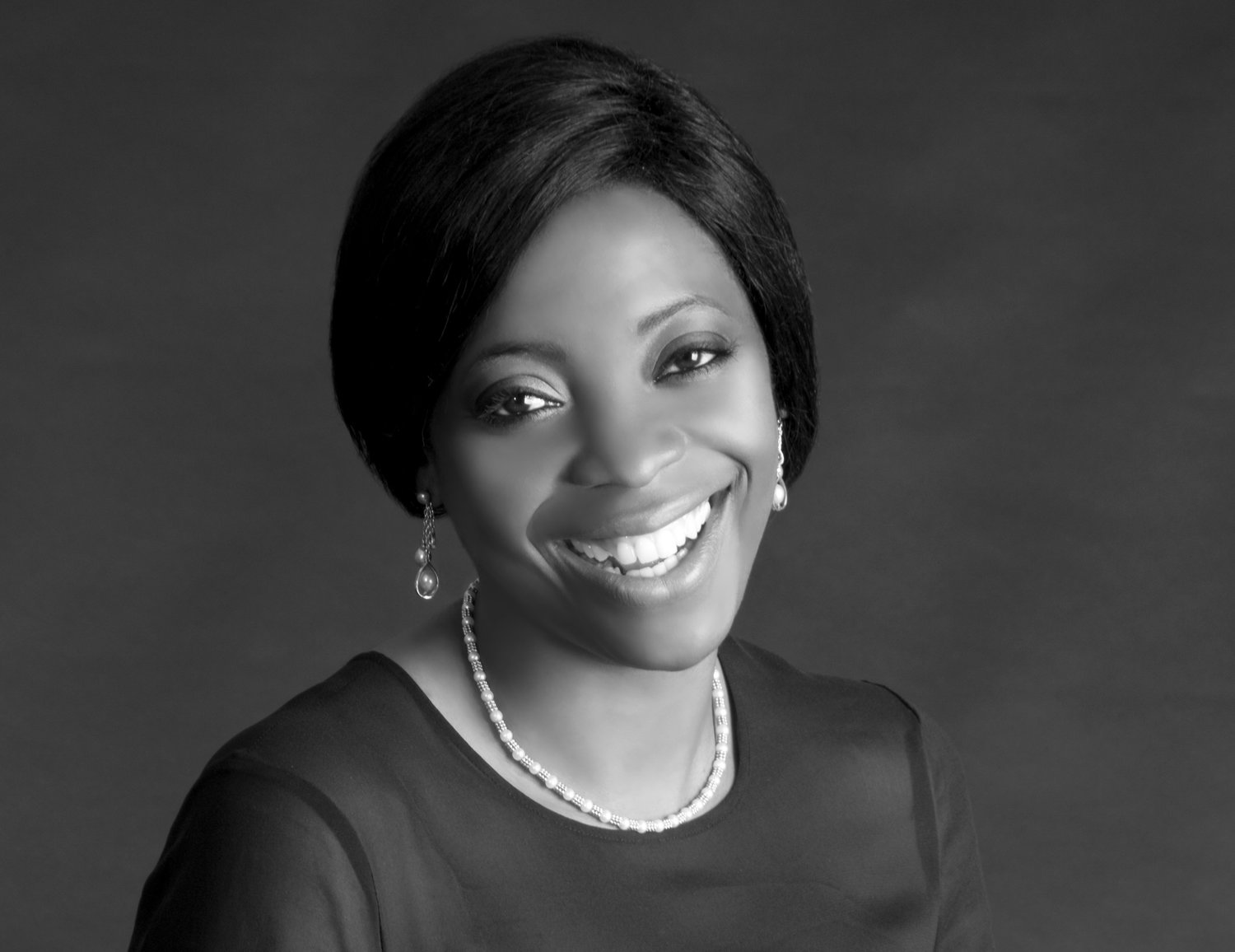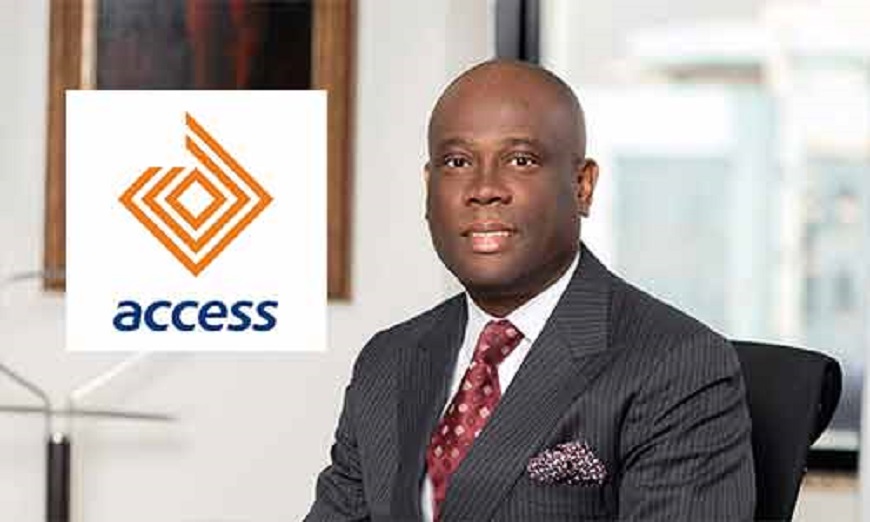Feature/OPED
Access Bank Lagos City Marathon 2025: A Tribute to Legacy, A Celebration of Resilience
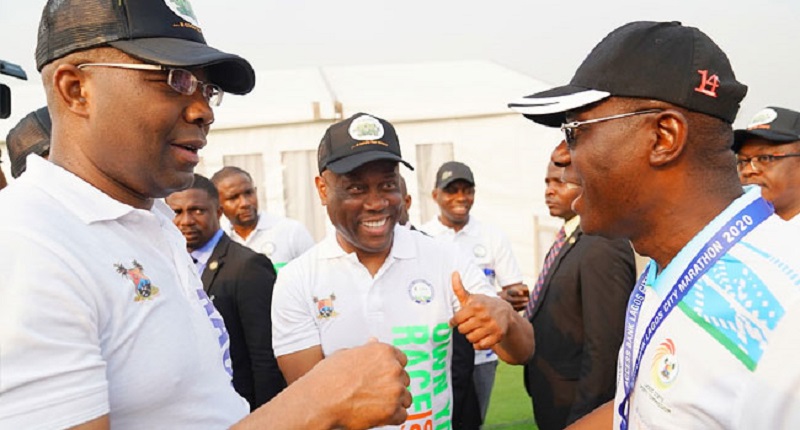
As Lagos gears up for the highly anticipated Access Bank Lagos City Marathon on Saturday, February 15, 2025, excitement and emotion run high. This year’s edition is much more than a race, it is a moving tribute to legacy and a celebration of resilience. Under the evocative theme “Miles to Memories,” every stride taken by the runners transforms physical distance into lasting recollections, blending athletic endurance with heartfelt remembrance of a visionary leader.
A Race that Transcends the Finish Line
Since its inaugural run in 2016, the Access Bank Lagos City Marathon has evolved from a local initiative into a global phenomenon. Originally established by Access Bank in collaboration with the Lagos State Government to promote healthier lifestyles, the event has grown into a symbol of unity, progress, and economic vitality for both Lagos and Nigeria. Today, the marathon not only places Lagos on the global sporting map but also showcases how major sporting events can drive tourism and stimulate business growth. As a Gold Label Marathon certified by the Association of International Marathons and Distance Races (AIMS), it stands as a testament to the powerful synergy between sport, community, and commerce.
Local businesses, from hotels and restaurants to vendors and transport providers, thrive during the marathon weekend, benefiting from increased patronage as communities come together to support and celebrate the event. This collective participation reinforces the idea that when people unite around a common purpose, the rewards are shared by all.
Honoring a Visionary: Remembering Herbert Wigwe
This year, the marathon carries added emotional significance. It marks the first anniversary of the passing of Herbert Wigwe, the late Group Chief Executive Officer of Access Holdings PLC, who was a transformative force behind the event. On the morning of February 10, 2024, a tragic helicopter crash claimed the lives of Herbert Wigwe, his wife, his son, and Abimbola Ogunbanjo, the former Group Chairman of the Nigerian Exchange Group PLC. The loss sent shockwaves throughout the nation, leaving an indelible void in the hearts of many Nigerians.
Despite the deep sense of loss, Herbert Wigwe’s legacy continues to inspire. In the wake of the tragedy, concerns arose that Access Bank might reconsider its sponsorship of the marathon. Instead, in a poignant gesture of remembrance and commitment, Access Bank, together with the Lagos State Government, has reaffirmed its support for the marathon. This enduring dedication ensures that Wigwe’s dreams and aspirations remain an integral part of every step taken by the runners.
“Miles to Memories”: A Journey of Emotion and Endurance
The theme “Miles to Memories” perfectly encapsulates the spirit of this year’s marathon. It suggests that every mile covered is imbued with personal and collective memories, reminders of challenges overcome, of unity celebrated, and of hope nurtured for a better future. For many participants, the race is a chance to commemorate Herbert Wigwe, whose visionary leadership not only transformed Access Bank but also reshaped the sporting landscape of Lagos. His enduring commitment to community development, healthy living, and economic empowerment continues to serve as a beacon for all who aspire to make a positive impact.
Each runner’s journey on the race day acts as a bridge between past and future, where the physical act of running becomes a metaphor for overcoming adversity and building a hopeful tomorrow. The event stands as a tribute not only to athletic excellence but also to the unyielding human spirit that continues to rise in the face of loss.
From Humble Beginnings to Global Prominence
When Access Bank and the Lagos State Government first partnered in 2016 to host the marathon, their goal was simple: to encourage a healthier lifestyle among Lagosians. Under Herbert Wigwe’s visionary leadership, the event quickly grew in stature. Today, it has attracted over 600,000 registered athletes from 14 countries, establishing itself as one of Africa’s most prestigious road races. This remarkable evolution is a testament to the power of visionary leadership, community engagement, and a relentless pursuit of excellence.
The marathon’s growth from a local initiative to a globally recognised event highlights how passion and determination can transform a modest idea into an internationally celebrated movement. Lagos has firmly established itself as a marathon city renowned for its energy, hospitality, and unwavering commitment to progress.
Herbert Wigwe’s Vision: A Marathon for Unity & Progress
Herbert Wigwe’s influence on the Access Bank Lagos City Marathon remains as palpable today as ever. During the 2021 edition, he stated:
“As one of the leading banks in Nigeria and indeed Africa, it is imperative for us to support the economic and social development of the communities in which we operate. Hence, we have sponsored the Access Bank Lagos City Marathon to make Lagos more attractive to tourists and investors alike. We have also used this platform to create jobs and opportunities for thousands in the state.”
These words, imbued with hope and ambition, continue to guide the event. More than merely a race, the marathon has become a living legacy of Wigwe’s unwavering commitment to community development and the transformative power of sport. His visionary approach has paved the way for countless initiatives that enrich lives, create employment opportunities, and foster pride and unity among Nigerians.
Herbert Wigwe’s legacy is not confined to history, it lives on in the hearts of those he touched and in the strides of every runner who participates in the marathon. His vision for a healthier, more prosperous Lagos inspires all, ensuring that his contributions will never be forgotten. Every cheer from the crowd, every drop of sweat on the pavement, and every moment of reflection during the race stands as a tribute to a man dedicated to progress, unity, and excellence.
The Access Bank Lagos City Marathon 2025 is more than a sporting event—it is a movement that transforms challenges into triumphs and distances into memories. It celebrates life, resilience, and the indomitable spirit of a community marching forward, one determined step at a time.
Sponsors: The Pillars Behind the Marathon
Central to the success of the Access Bank Lagos City Marathon are its dedicated sponsors. Access Bank, the major sponsor, has remained steadfast in its commitment to community development, ensuring that the marathon continues to be a platform for positive change. In partnership with the Lagos State Government, the event has grown into a major contributor to the local economy and an enduring source of inspiration for athletes and citizens alike.
Their unwavering support has been crucial in maintaining the high standards of the marathon, including its prestigious Gold Label status from AIMS. This commitment not only honours Herbert Wigwe’s legacy but also ensures that the marathon continues to inspire future generations to embrace a healthy, active lifestyle while cherishing the memories forged along the way.
Community, Commerce, and the Spirit of Resilience
The Access Bank Lagos City Marathon is a celebration of more than athletic prowess, it is a testament to the power of community and the resilience of Lagosians. The event has consistently demonstrated that when communities unite, remarkable achievements are possible. By boosting local tourism and generating business opportunities, the marathon has had a transformative impact on the city’s economy.
During marathon weekend, local businesses such as hotels, restaurants, and retail outlets experience a surge in activity as visitors from around the globe flock to Lagos. At the same time, the event showcases the city’s vibrant culture on an international stage, reinforcing the idea that sport and commerce can work hand in hand to drive progress.
The Journey Ahead: Legacy, Resilience, and Unity
As runners prepare to take to the streets of Lagos on February 15, 2025, the atmosphere is charged with a profound sense of purpose. The marathon is not just a competition; it is a journey of remembrance and unity, where every stride honors the memory of Herbert Wigwe and every mile becomes a cherished memory. The theme “Miles to Memories” reminds participants that the race is as much about personal triumph as it is about collective resilience and hope.
In the face of past tragedies and challenges, the marathon stands as a beacon of hope. It is a day when the nation comes together to celebrate life, honor legacy, and build a future founded on unity and progress. Each runner carries with them the spirit of determination and the memory of a leader who believed in the power of community and the strength of collective ambition.
In celebrating “Miles to Memories,” the Access Bank Lagos City Marathon 2025 encapsulates the journey from loss to legacy, from grief to hope, and from memories to future milestones. With the steadfast support of sponsors like Access Bank and the Lagos State Government, this marathon not only delivers an exhilarating athletic challenge but also forges enduring memories that will inspire generations to come.
As the starting gun fires and runners take their first steps on the vibrant streets of Lagos, they are not merely participating in a race, they are becoming part of a legacy. Every mile traversed is a reminder of the resilience, unity, and indomitable spirit that define this great city. And in every memory made, the legacy of Herbert Wigwe lives on, guiding each runner toward a brighter, more hopeful future.
Herbert Wigwe may be gone, but his vision continues to run through the veins of every Lagosian and every athlete crossing the finish line. In Lagos, every mile is a memory, and every memory is a step toward a better tomorrow.
Feature/OPED
How Christians Can Stay Connected to Their Faith During This Lenten Period

It’s that time of year again, when Christians come together in fasting and prayer. Whether observing the traditional Lent or entering a focused period of reflection, it’s a chance to connect more deeply with God, and for many, this season even sets the tone for the year ahead.
Of course, staying focused isn’t always easy. Life has a way of throwing distractions your way, a nosy neighbour, a bus driver who refuses to give you your change, or that colleague testing your patience. Keeping your peace takes intention, and turning off the noise and staying on course requires an act of devotion.
Fasting is meant to create a quiet space in your life, but if that space isn’t filled with something meaningful, old habits can creep back in. Sustaining that focus requires reinforcement beyond physical gatherings, and one way to do so is to tune in to faith-based programming to remain spiritually aligned throughout the period and beyond.
On GOtv, Christian channels such as Dove TV channel 113, Faith TV and Trace Gospel provide sermons, worship experiences and teachings that echo what is being practised in churches across the country.
From intentional conversations on Faith TV on GOtv channel 110 to true worship on Trace Gospel on channel 47, these channels provide nurturing content rooted in biblical teaching, worship, and life application. Viewers are met with inspiring sermons, reflections on scripture, and worship sessions that help form a rhythm of devotion. During fasting periods, this kind of consistent spiritual input becomes a source of encouragement, helping believers stay anchored in prayer and mindful of God’s presence throughout their daily routines.
To catch all these channels and more, simply subscribe, upgrade, or reconnect by downloading the MyGOtv App or dialling *288#. You can also stream anytime with the GOtv Stream App.
Plus, with the We Got You offer, available until 28th February 2026, subscribers automatically upgrade to the next package at no extra cost, giving you access to more channels this season.
Feature/OPED
Turning Stolen Hardware into a Data Dead-End

By Apu Pavithran
In Johannesburg, the “city of gold,” the most valuable resource being mined isn’t underground; it’s in the pockets of your employees.
With an average of 189 cellphones reported stolen daily in South Africa, Gauteng province has become the hub of a growing enterprise risk landscape.
For IT leaders across the continent, a “lost phone” is rarely a matter of a misplaced device. It is frequently the result of a coordinated “snatch and grab,” where the hardware is incidental, and corporate data is the true objective.
Industry reports show that 68% of company-owned device breaches stem from lost or stolen hardware. In this context, treating mobile security as a “nice-to-have” insurance policy is no longer an option. It must function as an operational control designed for inevitability.
In the City of Gold, Data Is the Real Prize
When a fintech agent’s device vanishes, the $300 handset cost is a rounding error. The real exposure lies in what that device represents: authorised access to enterprise systems, financial tools, customer data, and internal networks.
Attackers typically pursue one of two outcomes: a quick wipe for resale on the secondary market or, far more dangerously, a deep dive into corporate apps to extract liquid assets or sellable data.
Clearly, many organisations operate under the dangerous assumption that default manufacturer security is sufficient. In reality, a PIN or fingerprint is a flimsy barrier if a device is misconfigured or snatched while unlocked. Once an attacker gets in, they aren’t just holding a phone; they are holding the keys to copy data, reset passwords, or even access admin tools.
The risk intensifies when identity-verification systems are tied directly to the compromised device. Multi-Factor Authentication (MFA), widely regarded as a gold standard, can become a vulnerability if the authentication factor and the primary access point reside on the same compromised device. In such cases, the attacker may not just have a phone; they now have a valid digital identity.
The exposure does not end at authentication. It expands with the structure of the modern workforce.
65% of African SMEs and startups now operate distributed teams. The Bring Your Own Device (BYOD) culture has left many IT departments blind to the health of their fleet, as personal devices may be outdated or jailbroken without any easy way to know.
Device theft is not new in Africa. High-profile incidents, including stolen government hardware, reinforce a simple truth: physical loss is inevitable. The real measure of resilience is whether that loss has any residual value. You may not stop the theft. But you can eliminate the reward.
Theft Is Inevitable, Exposure is Not
If theft cannot always be prevented, systems must be designed so that stolen devices yield nothing of consequence. This shift requires structured, automated controls designed to contain risk the moment loss occurs.
Develop an Incident Response Plan (IRP)
The moment a device is reported missing, predefined actions should trigger automatically: access revocation, session termination, credential reset and remote lock or wipe.
However, such technical playbooks are only as fast as the people who trigger them. Employees must be trained as the first line of defence —not just in the use of strong PINs and biometrics, but in the critical culture of immediate reporting. In high-risk environments, containment windows are measured in minutes, not hours.
Audit and Monitor the Fleet Regularly
Control begins with visibility. Without a continuous, comprehensive audit, IT teams are left responding to incidents after damage has occurred.
Opting for tools like Endpoint Detection and Response (EDR) allows IT teams to spot subtle, suspicious activities or unusual access attempts that signal a compromised device.
Review Device Security Policies
Security controls must be enforced at the management layer, not left to user discretion. Encryption, patch updates and screen-lock policies should be mandatory across corporate devices.
In BYOD environments, ownership-aware policies are essential. Corporate data must remain governed by enterprise controls regardless of device ownership.
Decouple Identity from the Device
Legacy SMS-based authentication models introduce avoidable risk when the authentication channel resides on the compromised handset. Stronger identity models, including hardware tokens, reduce this dependency.
At the same time, native anti-theft features introduced by Apple and Google, such as behavioural theft detection and enforced security delays, add valuable defensive layers. These controls should be embedded into enterprise baselines rather than treated as optional enhancements.
When Stolen Hardware Becomes Worthless
With POPIA penalties now reaching up to R10 million or a decade of imprisonment for serious data loss offences, the Information Regulator has made one thing clear: liability is strict, and the financial fallout is absolute. Yet, a PwC survey reveals a staggering gap: only 28% of South African organisations are prioritising proactive security over reactive firefighting.
At the same time, the continent is battling a massive cybersecurity skills shortage. Enterprises simply do not have the boots on the ground to manually patch every vulnerability or chase every “lost” terminal. In this climate, the only viable path is to automate the defence of your data.
Modern mobile device management (MDM) platforms provide this automation layer.
In field operations, “where” is the first indicator of “what.” If a tablet assigned to a Cape Town district suddenly pings on a highway heading out of the city, you don’t need a notification an hour later—you need an immediate response. An effective MDM system offers geofencing capabilities, automatically triggering a remote lock when devices breach predefined zones.
On Supervised iOS and Android Enterprise devices, enforced Factory Reset Protection (FRP) ensures that even after a forced wipe, the device cannot be reactivated without organisational credentials, eliminating resale value.
For BYOD environments, we cannot ignore the fear that corporate oversight equates to a digital invasion of personal lives. However, containerization through managed Work Profiles creates a secure boundary between corporate and personal data. This enables selective wipe capabilities, removing enterprise assets without intruding on personal privacy.
When integrated with identity providers, device posture and user identity can be evaluated together through multi-condition compliance rules. Access can then be granted, restricted, or revoked based on real-time risk signals.
Platforms built around unified endpoint management and identity integration enable this model of control. At Hexnode, this convergence of device governance and identity enforcement forms the foundation of a proactive security mandate. It transforms mobile fleets from distributed risk points into centrally controlled assets.
In high-risk environments, security cannot be passive. The goal is not recovery. It is irrelevant, ensuring that once a device leaves authorised hands, it holds no data, no identity leverage, and no operational value.
Apu Pavithran is the CEO and founder of Hexnode
Feature/OPED
Daniel Koussou Highlights Self-Awareness as Key to Business Success

By Adedapo Adesanya
At a time when young entrepreneurs are reshaping global industries—including the traditionally capital-intensive oil and gas sector—Ambassador Daniel Koussou has emerged as a compelling example of how resilience, strategic foresight, and disciplined execution can transform modest beginnings into a thriving business conglomerate.
Koussou, who is the chairman of the Nigeria Chapter of the International Human Rights Observatory-Africa (IHRO-Africa), currently heads the Committee on Economic Diplomacy, Trade and Investment for the forum’s Nigeria chapter. He is one of the young entrepreneurs instilling a culture of nation-building and leadership dynamics that are key to the nation’s transformation in the new millennium.
The entrepreneurial landscape in Nigeria is rapidly evolving, with leaders like Koussou paving the way for innovation and growth, and changing the face of the global business climate. Being enthusiastic about entrepreneurship, Koussou notes that “the best thing that can happen to any entrepreneur is to start chasing their dreams as early as possible. One of the first things I realised in life is self-awareness. If you want to connect the dots, you must start early and know your purpose.”
Successful business people are passionate about their business and stubbornly driven to succeed. Koussou stresses the importance of persistence and resilience. He says he realised early that he had a ‘calling’ and pursued it with all his strength, “working long weekends and into the night, giving up all but necessary expenditures, and pressing on through severe setbacks.”
However, he clarifies that what accounted for an early success is not just tenacity but also the ability to adapt, to recognise and respond to rapidly changing markets and unexpected events.
Ambassador Koussou is the CEO of Dau-O GIK Oil and Gas Limited, an indigenous oil and natural gas company with a global outlook, delivering solutions that power industries, strengthen communities, and fuel progress. The firm’s operations span exploration, production, refining, and distribution.
Recognising the value of strategic alliances, Koussou partners with business like-minds, a move that significantly bolsters Dau-O GIK’s credibility and capacity in the oil industry. This partnership exemplifies the importance of building strong networks and collaborations.
The astute businessman, who was recently nominated by the African Union’s Agenda 2063 as AU Special Envoy on Oil and Gas (Continental), admonishes young entrepreneurs to be disciplined and firm in their decision-making, a quality he attributed to his success as a player in the oil and gas sector. By embracing opportunities, building strong partnerships, and maintaining a commitment to excellence, Koussou has not only achieved personal success but has also set a benchmark for future generations of African entrepreneurs.
His journey serves as a powerful reminder that with determination and vision, success is within reach.
-

 Feature/OPED6 years ago
Feature/OPED6 years agoDavos was Different this year
-
Travel/Tourism10 years ago
Lagos Seals Western Lodge Hotel In Ikorodu
-

 Showbiz3 years ago
Showbiz3 years agoEstranged Lover Releases Videos of Empress Njamah Bathing
-

 Banking8 years ago
Banking8 years agoSort Codes of GTBank Branches in Nigeria
-

 Economy3 years ago
Economy3 years agoSubsidy Removal: CNG at N130 Per Litre Cheaper Than Petrol—IPMAN
-

 Banking3 years ago
Banking3 years agoSort Codes of UBA Branches in Nigeria
-

 Banking3 years ago
Banking3 years agoFirst Bank Announces Planned Downtime
-

 Sports3 years ago
Sports3 years agoHighest Paid Nigerian Footballer – How Much Do Nigerian Footballers Earn


